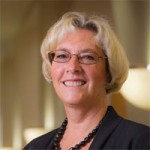This article is more than 5 years old.
Last week, I was finally able to attend the Development for Deans seminar put on by CASE (Council for Advancement and Support of Education). I had tried at least twice in the past, but life events got in the way. The Fall 2011 session was in Atlanta on November 2-4. It was a very full conference, seemingly oversubscribed, as every session was standing room only. The speakers were all long-time professional fundraisers with a lifetime of experiences on which to draw.
The first session was called the Art and Soul of Development. The speaker tried to convince the audience (made up mostly of academic deans) that raising money for a good cause is a noble profession. Philanthropy means the love of humankind; there is nothing more noble than that. He also made the point that while deans may feel beleaguered at home, donors are honored and enthusiastic about meeting “the Dean.” People give because they believe in your mission and it makes them feel good.
Roles for Deans in Development: Deans are leader figures that need to develop a shared vision, set priorities for BIG ideas, articulate the case for support, facilitate partnerships, make the ask or assist in making the ask, and go overboard in thanking and recognizing donors.
Creating Joyful Givers: I liked the approach in this session. The speaker tried to make us ordinary people understand the process from the side of the donor. They are not ordinary people. They know why you are making friends with them and as long as they are respected, they are willing partners in the process. She said, “it is impossible to sneak up on rich people and impossible to keep them in a relationship they don’t want to be in.” She advised doing more listening than telling, looking for overlap of interests, and purposeful conversations. When they say, “how can I help?” is the time to move beyond cultivation to the ask.
Advisory Boards: we do not have a separate library board (and listening to advice from people I respect most, that is probably for the best) but I do participate in various other boards in the University. Boards are tricky in balancing interests of the participants and the institution. The message here is to be clear in expectations on both sides, otherwise there is much spinning of wheels that frequently ends in frustration.
Planning for Development: The norm is for a dean to spend at least 50% of his/her time on development. If I keep to that, it will make a huge difference in the culture/operations of ZSR. Often a dean with new development responsibilities needs to add staff to the dean’s office. (Fortunately, we have already done that with the addition of Susan as a second Associate Dean.) A dean’s job is to envision the future and then plan how to get there. Donors can help us get there. It is essential to work with, not against, central development staff and demonstrate your willingness to do what it takes.
Dream Team: a lunchtime program explored the relationship of a successful dean and her development team. Of course, she had a staff of five in her academic development unit (not a library) so it really did seem like a dream.
Campaign Essentials: this session confirmed that our own WFU Advancement team knows what they are doing in structuring a campaign. Everything we have done here is according to well-established principles. In a typical timeline of 7 years, there is a planning phase of 1-2 years, a quiet phase of 2-3 years (which we are in now) where 30-50% of the goal will be raised, and then the public phase of 3-4 years where there is broad engagement of all members of the community. The institutional vision and priority-setting is all important to the campaign; without it, nothing will work. It is my job to make sure ZSR is in that vision and priority for Wake Forest.
This seminar reinforced what I have been learning and absorbing at the ALADN (library fundraising) conferences over the past 7 years. So, now is the time: next week I travel to meet with potential donors and try to interest them in ZSR and its programs.
Wish me luck!

4 Comments on ‘Development for Deans and Academic Leaders’
Good Luck! Its most interesting that donors won’t stay in a relationship that they don’t want to. It explains the balance of power. All we need to be, and can be, is our marvelous, usual library.
It’s very exciting that you are taking ZSR into this realm. I don’t know how potential donors can resist our story!
It’s so exciting, Lynn! I know it can’t be easy to forge the relationships, but I also know it’s hard not to be enthusiastic when talking about all the great things we do at ZSR. Good luck!
You have a whole staff willing to do what it takes so go tell our story! No one does it better than you!!